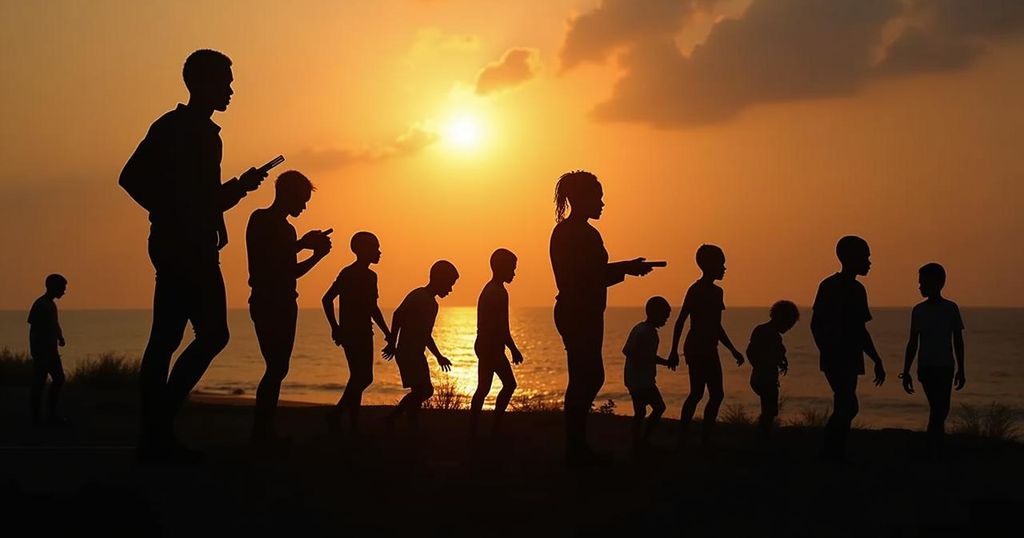The Dominican Republic intends to deport up to 10,000 Haitian migrants weekly, despite UN warnings against forced repatriation amid escalating gang violence in Haiti. The decision, aimed at controlling migrant populations, has drawn criticism from human rights organizations citing underlying racial discrimination. The UN has urged leniency in the treatment of Haitians due to the dire circumstances they face.
The Dominican Republic has announced its intention to deport up to 10,000 Haitian migrants weekly, despite strong objections from the United Nations regarding the forced return of individuals to Haiti amid a spike in gang violence and instability. Presidential spokesman Homero Figueroa stated that the operation seeks to mitigate what is perceived as an excessive concentration of migrants in Dominican communities, initiating these expulsions immediately. This decision follows alarming reports from the UN that indicate over 3,600 casualties due to rampant gang violence in Haiti during the initial half of 2024. The country is suffering from dire humanitarian conditions, with 700,000 individuals internally displaced and more than 5.4 million Haitians facing acute hunger. The persistent insecurity stems from armed groups vying for territorial control, often linked to political and economic figures within Haiti. The situation has deteriorated markedly since late February, leading to the resignation of the unelected prime minister and the establishment of a transitional council, accompanied by an under-resourced multinational police mission spearheaded by Kenya that has yet to reclaim control from the gangs, which dominate 80 percent of Port-au-Prince. The Dominican government attributes the expulsion decision to the sluggish response of the international community in stabilizing Haiti, underscoring President Luis Abinader’s strict approach to immigration, which already saw about 250,000 undocumented Haitians expelled in 2023 alone. Human rights organizations have criticized this enforcement action as racially motivated, highlighting a broader historical trend of anti-Haitian sentiment in the Dominican Republic. In response to the increasing deportations, advocates like William Charpantier of MENAMIRD have drawn attention to the separation of families and unlawful detainment of individuals with valid documentation, labeling the actions as racially biased persecution. The UN Refugee Agency has reinforced the need for countries not to deport Haitians, emphasizing the threats posed to their safety and freedom due to escalating violence and human rights violations in Haiti.
The Dominican Republic, sharing the Caribbean island of Hispaniola with Haiti, has a complicated relationship with its neighbor characterized by waves of migration ever since the U.S. occupation of Haiti began in 1915. Today, the Dominican Republic is home to a significant Haitian population; however, there is a longstanding history of discrimination and xenophobia towards Haitians within Dominican society. The recent announcement of mass expulsions comes amidst a humanitarian crisis in Haiti driven by relentless gang violence, economic instability, and a lack of effective governance. The United Nations has called for caution against deporting Haitians back to their country as the humanitarian situation declines.
In conclusion, the Dominican Republic’s plan to expel Haitian migrants amidst ongoing instability and humanitarian crises in Haiti raises significant ethical concerns. The Dominican government emphasizes the need to address the perceived overpopulation of migrants, while human rights advocates warn of the racially discriminatory implications of such policies. The UN’s consistent warnings regarding forced repatriation highlight the urgent need for international intervention and support for the Haitian population. The unfolding situation demands close monitoring and a compassionate response to safeguard the rights and safety of vulnerable individuals.
Original Source: www.aljazeera.com







